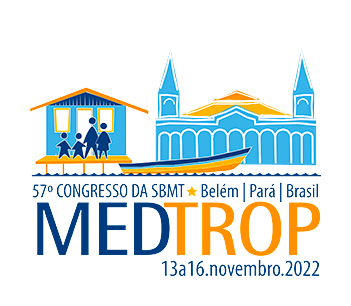Dados do Trabalho
Título
Evaluation of the influence of Anopheles aquasalis JNK, Fos and Puc immunity genes during Plasmodium yoelii infection
Introdução
Malaria is a disease caused by protozoa of the genus Plasmodium, parasites transmitted to humans through an infected anopheline mosquito bite. The activity of the mosquito's immune system is one factor that interferes with the efficiency of infection and transmission of the protozoan to vertebrate hosts. Despite its importance, little is known about the immunological responses of vectors from the New World (Americas) in the fight against the parasite. Based on the scarcity of knowledge about the biology and immunology of the American vectors, the present study evaluated the importance of the JNK immune pathway of the American vector Anopheles aquasalis during Plasmodium sp. infection.
Objetivo(s)
To evaluate the influence of the JNK, Fos, and Puc immunity genes, components of the Jun N-Terminal Kinase (JNK) immune signaling pathway of the Anopheles aquasalis infected with Plasmodium yoelii.
Material e Métodos
Through the RNA interference (RNAi) technique, the immunity genes JNK, Fos and Puc were silenced and evaluated the impact of the infection on the anopheline. In addition, the expression levels of antimicrobial peptides (AMPs) defensin-2 and gambicin were evaluated before and after infection during Fos and Puc silencing.
Resultados e Conclusão
The silencing of the JNK gene in An. aquasalis reduced both intensity and infection rate compared to the control. Fos gene silencing reduced infection intensity, increased gambicin expression, and did not alter defensin-2 expression. Puc gene silencing did not impact infection or AMPs expression. The results of this study differ from those observed for An. gambiae, the primary malaria vector in Africa; but they resemble those of An. stephensi, an Asian vector. The JNK immune pathway was not efficient in combating P. yoelii in An. aquasalis, and the parasite reduction observed after silencing both JNK and Fos indicates that it reflects the action of an alternative immune pathway. These results increase the information regarding the interaction between anopheline vectors and Plasmodium that cause malaria, in addition to generating knowledge about the immune responses of an important American vector to infection by the protozoan. Complementary studies on the functioning of the various immune pathways and their possible interrelationships are necessary and have great potential to substantiate the development of new strategies to control and block the transmission of Plasmodium to vertebrate hosts.
Palavras-chave
Plasmodium yoelii, Anopheles aquasalis, JNK immune pathway.
Área
Eixo 04 | Entomologia / Controle de Vetores
Categoria
NÃO desejo concorrer ao Prêmio Jovem Pesquisador
Autores
Breno dos Anjos Costa, Raquel Soares Maia Godoy, Alessandra da Silva Orfanó, Ana Paula Marques Duarte, Rosa Amélia Gonçalves Santana, Rodrigo Maciel Alencar, Cesar Camilo Prado Sepulveda, Wuelton Marcelo Monteiro, Marcus Vinícius Guimarães Lacerda, Nágila Francinete Costa Secundino, Paulo Filemon Paolucci Pimenta
